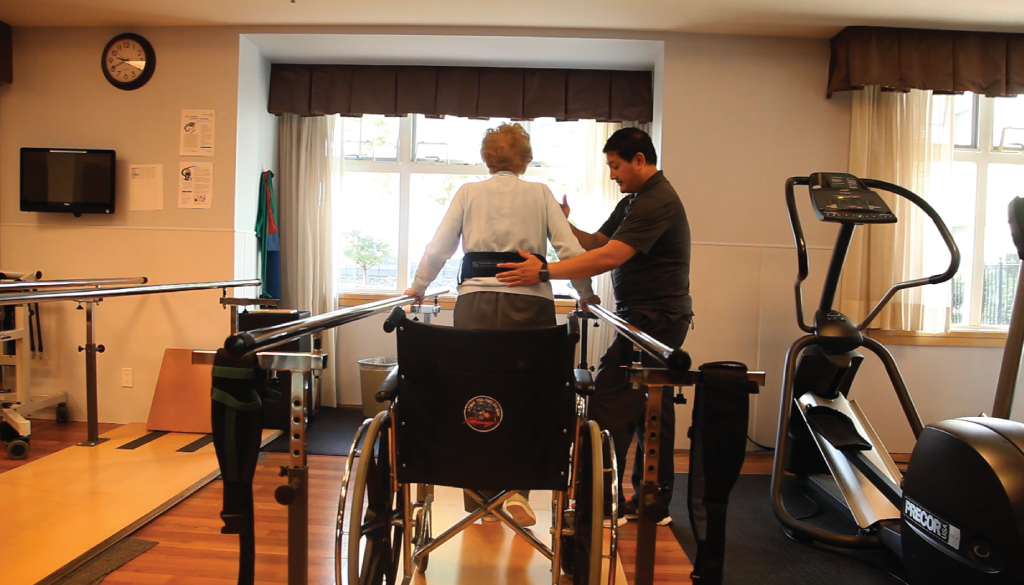By Lara Croll

If recent announcements made by the Ministry of Health are an indication, the B.C. government is clearly focused on enhancing primary care services for British Columbians. And while these recent investments are no doubt important for our health and well-being, it would be an oversight for the government to limit the scope of its concern to primary heath.
In our aging society, ensuring that frail and elderly British Columbians have access to seniors care services is critically important. If we want everyone in B.C. to be able to age in place in their own community, it will be essential to secure a robust supply of seniors care workers.
However, our province is currently facing a health human resource crisis. Continuing care employers all across the province are reporting chronic recruitment challenges for nurses, health care assistants and other care workers. These labour shortages are due to a myriad of factors – including increase demand for care services, low employment levels and an aging workforce – which has created a ‘perfect storm’ of labour shortages in both urban and rural communities.
In order to weather these conditions, the BC Ministry of Health has identified a need to recruit an additional 2,800 health care assistants (HCAs) over the next five years.
Responding to this emerging crisis, the BC Care Providers Association (BCCPA) has been working to identify practical approaches to increase the supply of HCAs in the province. By consulting with sector stakeholders – including industry, unions, career colleges and frontline workers themselves – the BCCPA has managed to identify 10 priority actions to address the crisis. These actions are summarized in the BCCPA’s latest report, entitled Situation Critical: A Made-in-BC Plan to Address the Seniors Care Labour Shortage.
In particular, the report highlights the need for a comprehensive marketing and promotion campaign to raise awareness of the job opportunities that await health care assistants and nurses in B.C.’s seniors care sector. The campaign should focus on local communities in order to address the needs of rural and remote areas, as well as urban centres.
Along with building awareness, the report identified the need to improve access to training and education programs. People seeking to train as health care assistants face many barriers to successful completion, such as high tuition costs, lack of affordable housing, and unequal access to training in rural communities. BCCPA believes that students should be better supported to complete training by providing financial incentives, including bursaries, tuition relief and student loan forgiveness.
Expanding dual credit programs will also improve access to training in local communities. Dual credit programs enable qualified high school students to train as health care assistants while also earning credit towards their high school graduation, giving them a head start on transitioning into the workforce.
The report also identifies that new Canadians may be better supported to integrate into the labour market. Like many other industries, as Canada’s population growth slows, the health care sector will be increasingly relying on immigrants to supplement our domestic workforce. However, care workers from other countries face significant barriers to finding employment. Supporting international care workers to secure work permits, and to get their credentials recognized would smooth their transition into the labour market and increase the supply of qualified nurses and HCAs.
Finally, many experts have identified that there is a need to address worker safety into the seniors care sector. Along with contributing to over 150,000 workdays lost each year, workplace injuries negatively impact worker recruitment into caregiver occupations. Investing in a comprehensive training and equipment initiative would not only make the sector a safer place to work, but it would also boost supply of qualified care workers.
At BC Care Providers Association, we firmly believe that if the recommendations outlined in this report are put into action it will significantly increase the supply of new care workers in B.C. We call upon the provincial and federal government to implement the approaches outlined in the report, and to make it a priority to invest in the seniors care workforce of the future.





